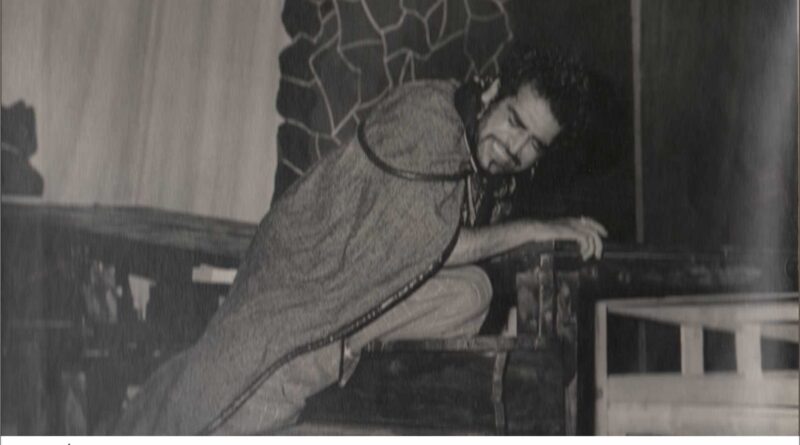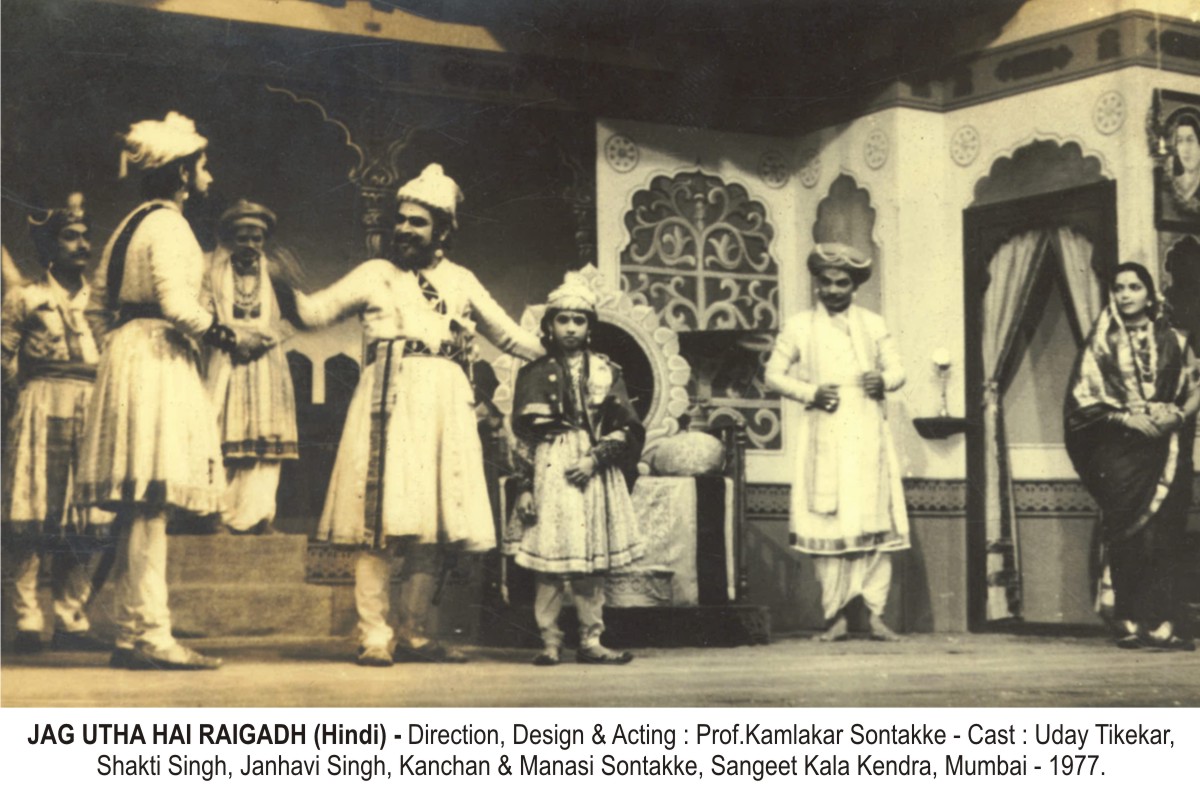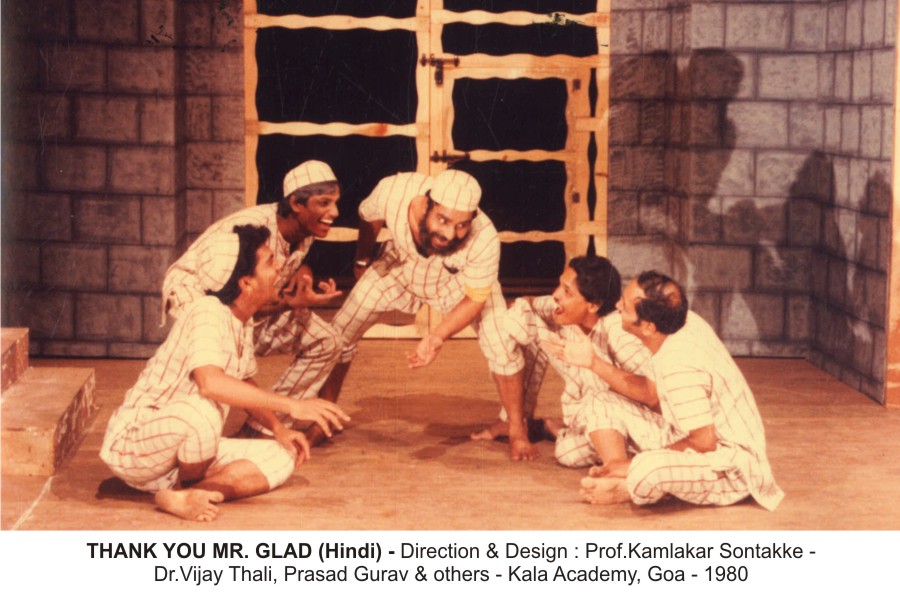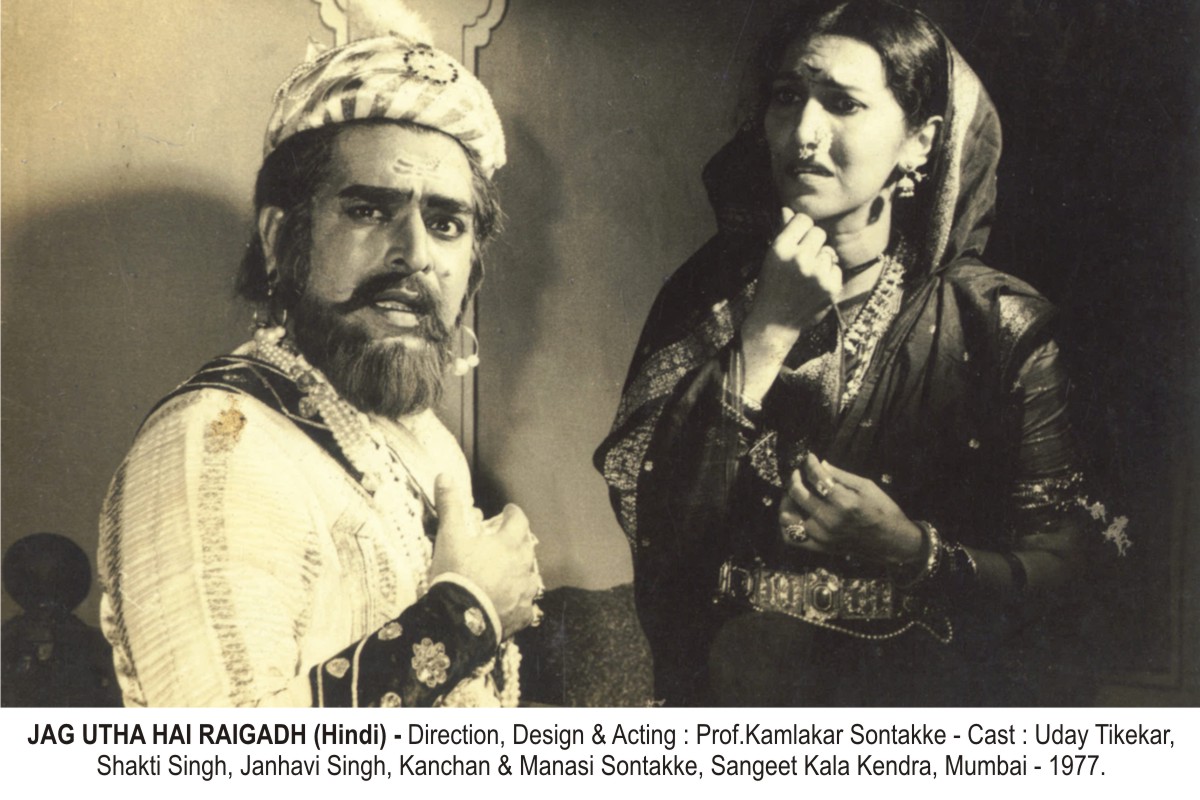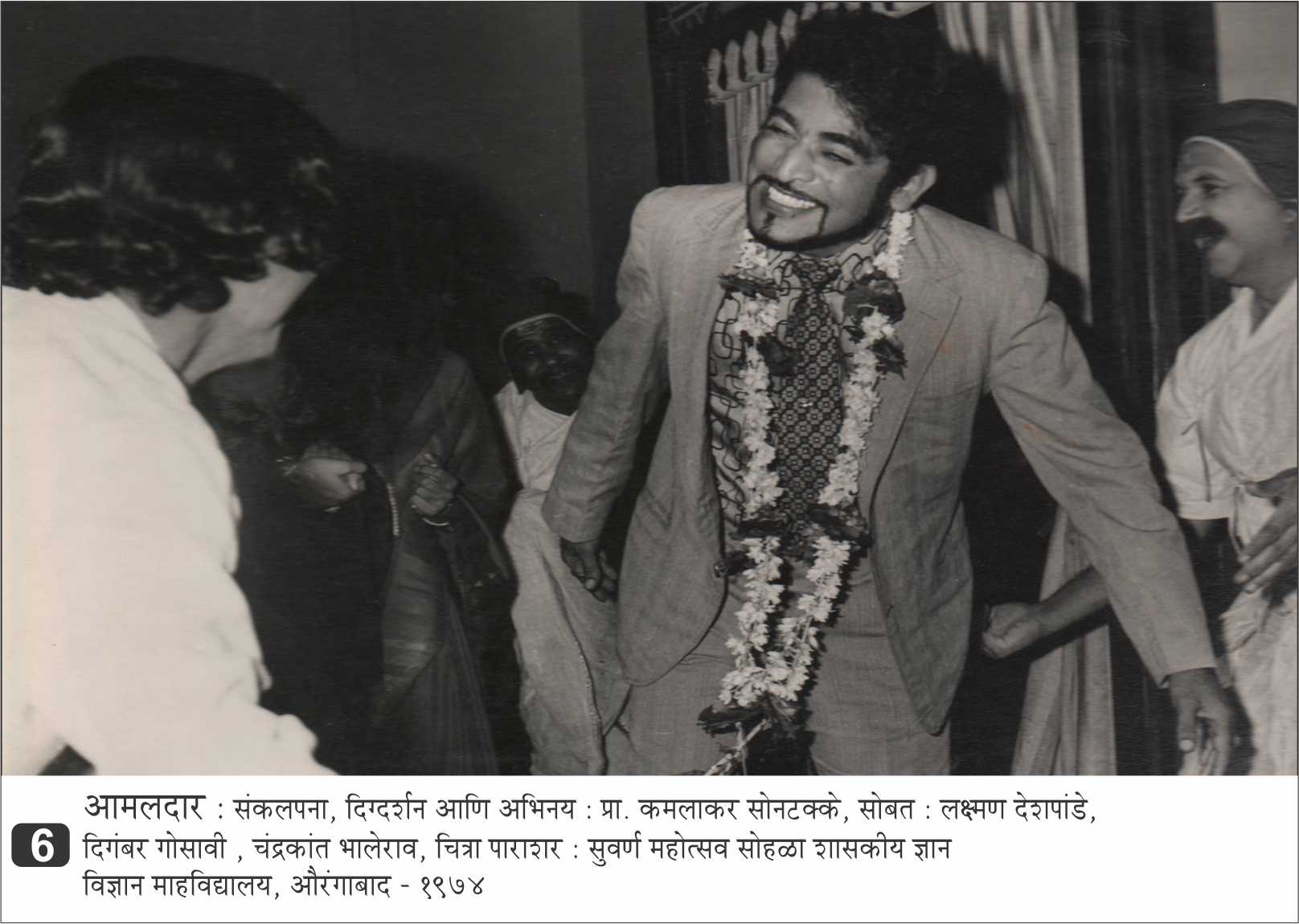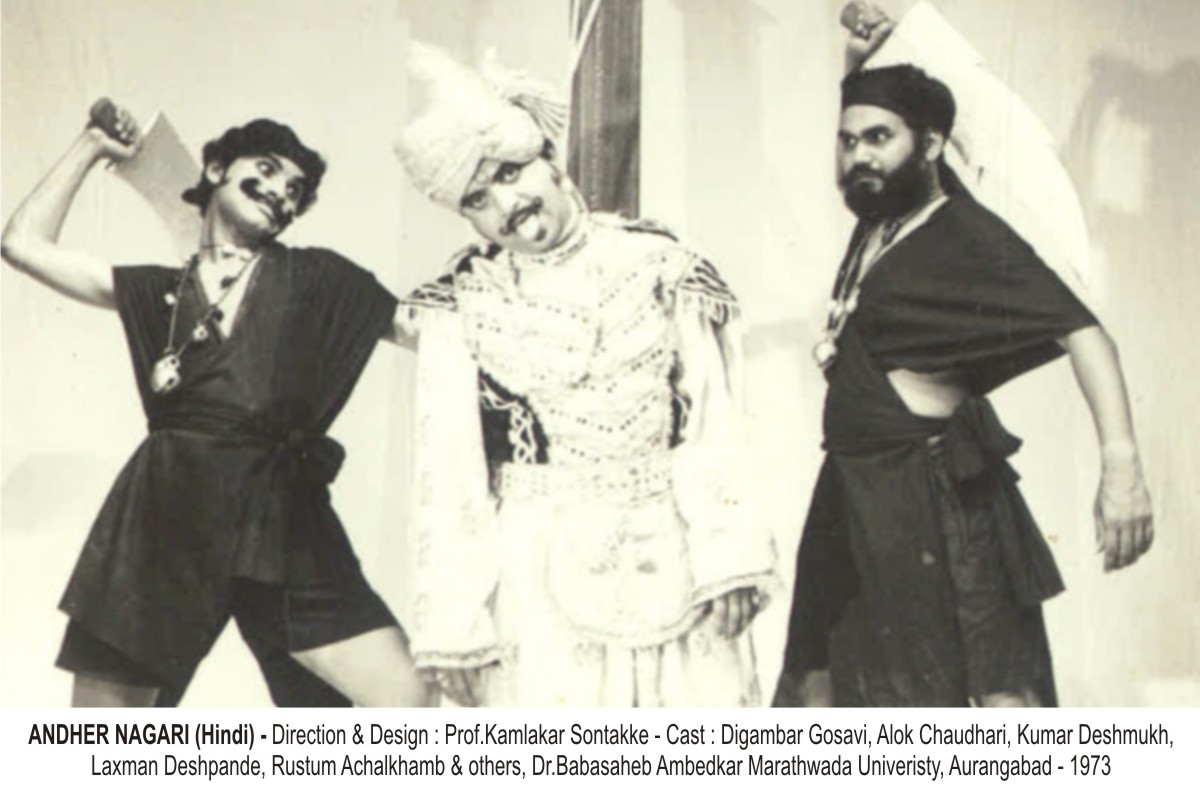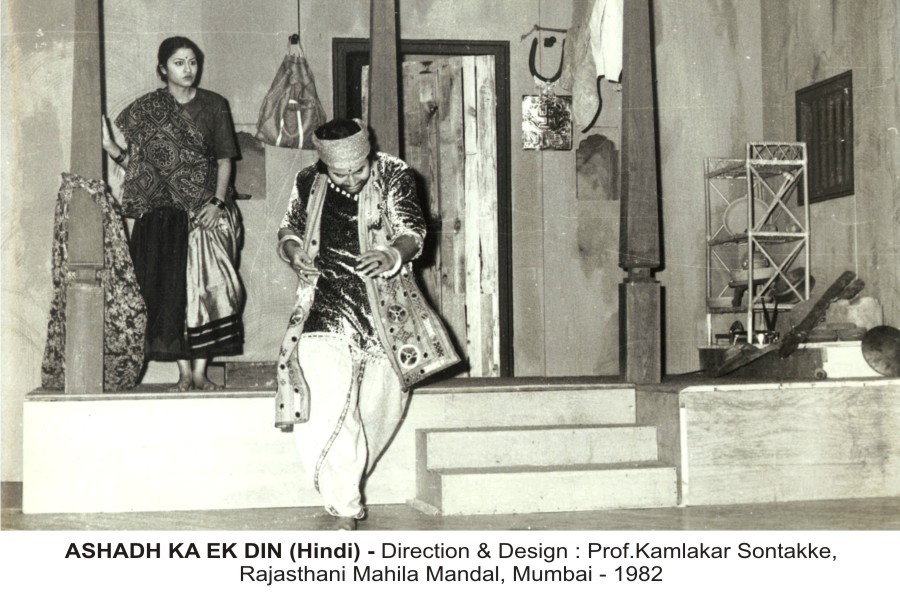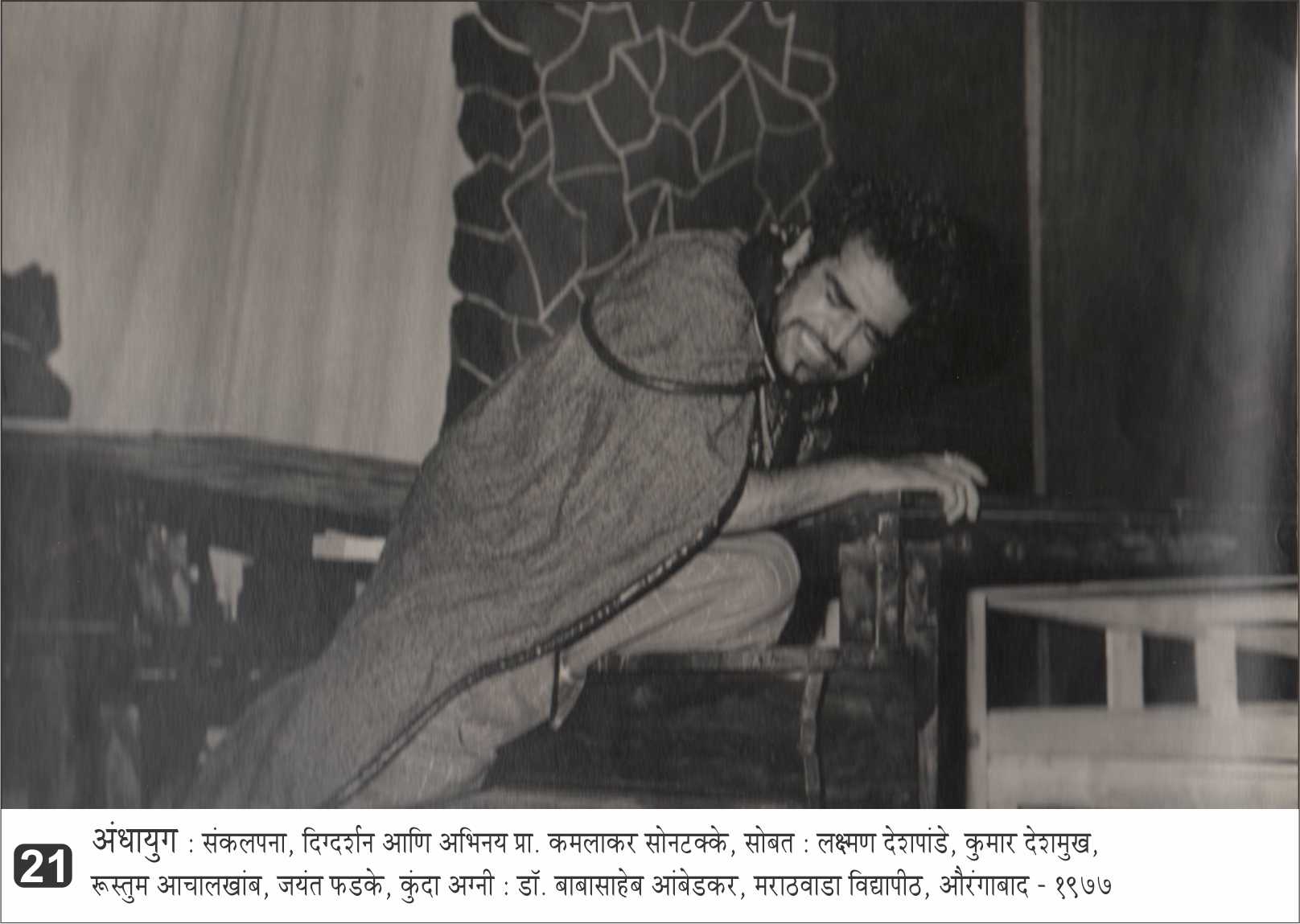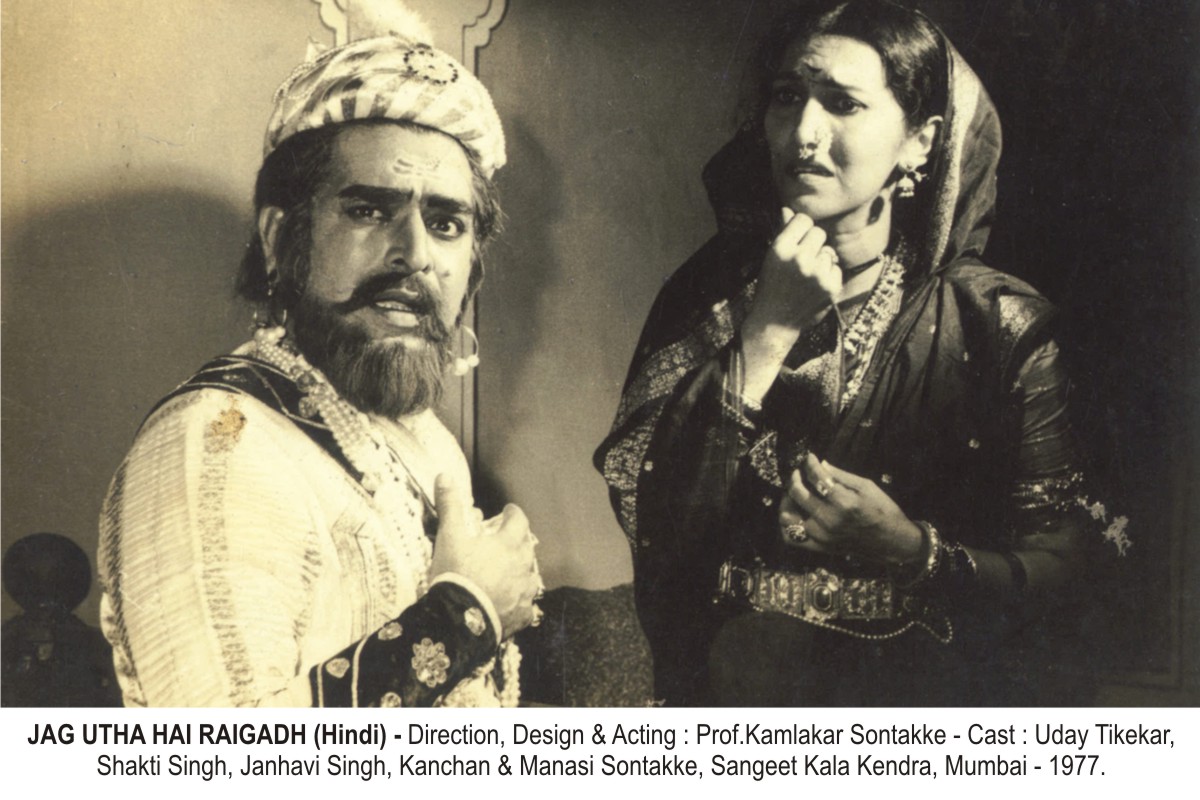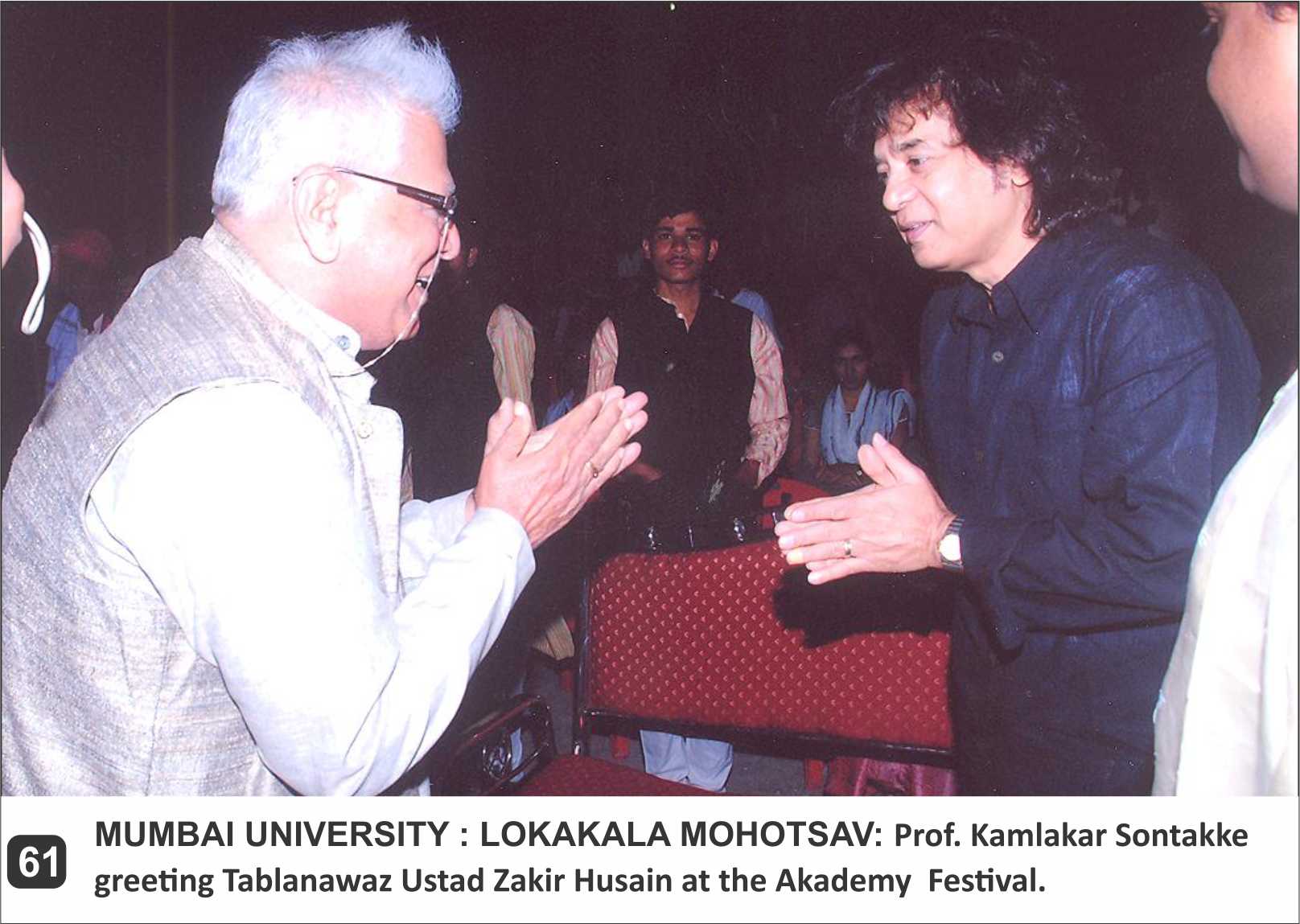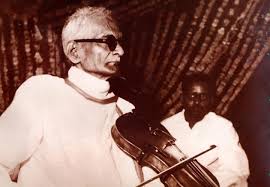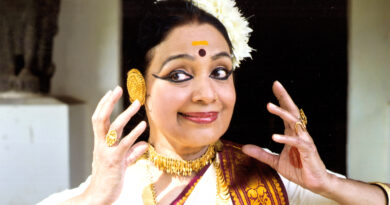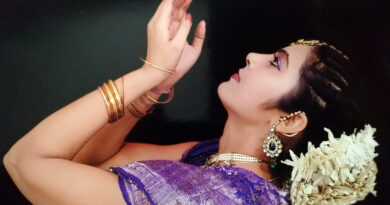The Prolific Art Administrator: Kamalakar Murlidhar Sontakke
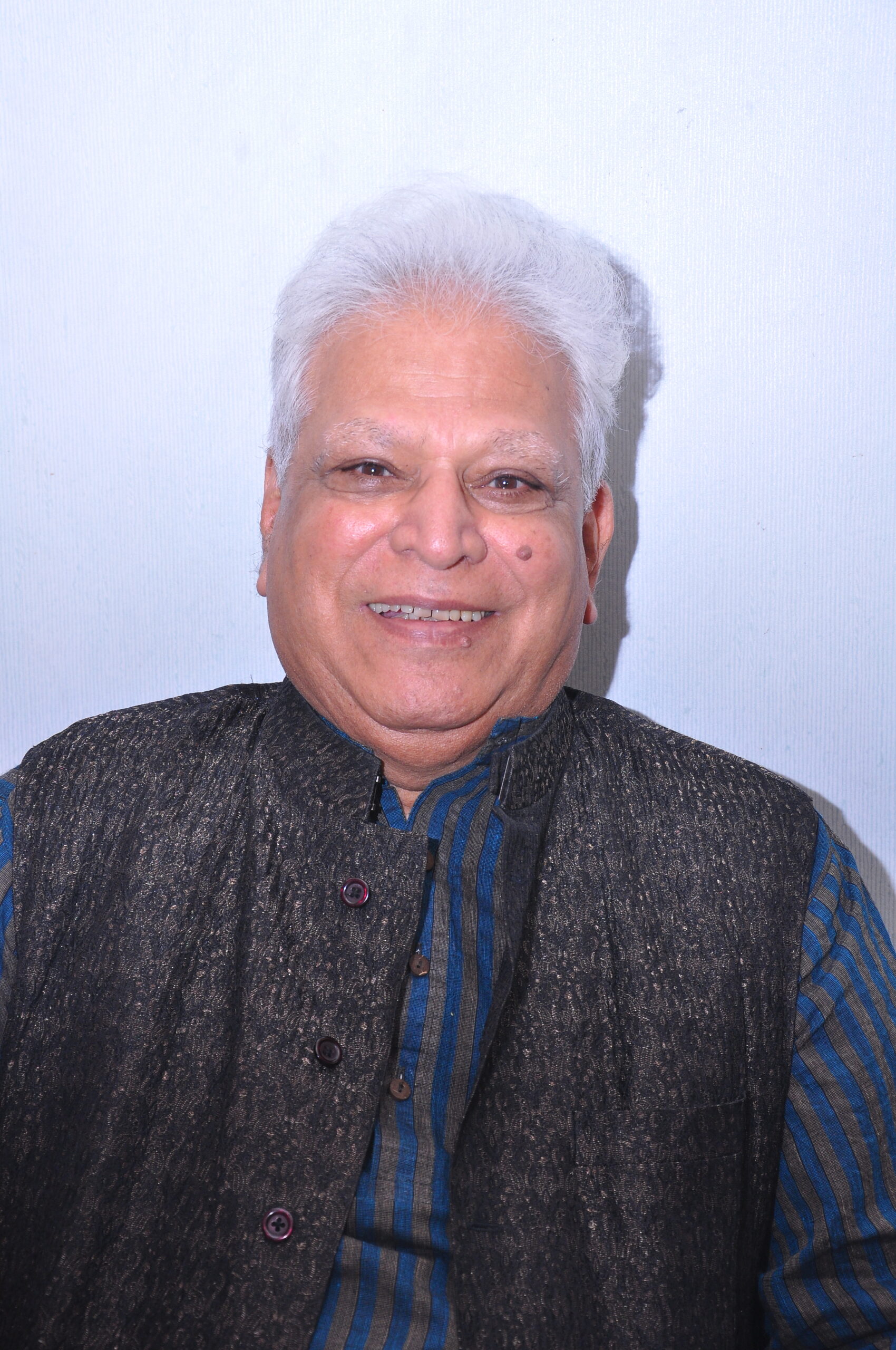
Text: Paul Nicodemus
Theatre arts are such an intricate world, a febrile network of human relationships woven in words and expressions, an exhilarating experience to pursue. In this hustling world of opportunists, where administration of such a framework of art is also a cumbersome task, stands a magnificent persona, contributing and managing the world of arts, aiming solely to serve the theatre arts and fortify the cultural scenario of the country through sheer progressiveness and will power.
A veteran actor, a recipient of the Sangeet Natak Akademi Award, and a former chairman of the prestigious Nehru Centre in Mumbai, Professor Kamlakar Muralidhar Sontakke is a renowned theatre personality, trained at the National School of Drama, Delhi.
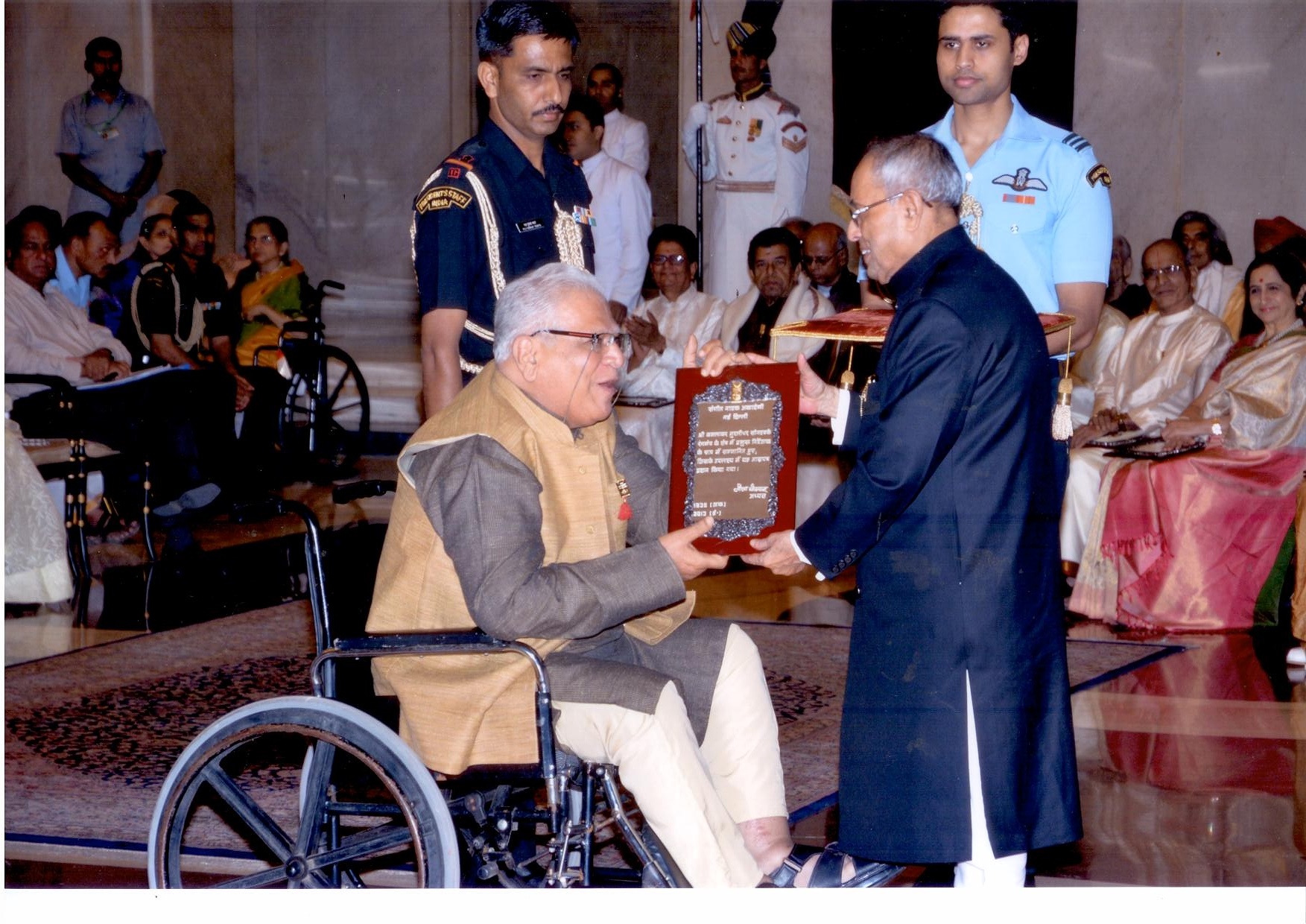
Born in the year 1939, Sri Kamalakar, hails from a remote village, Vadochatha, 9km from Ajantha, and 48km from the city of Aurangabad. He completed his 10th class in Vadochatha, and relocated to Aurangabad for higher education in the year, 1955. His father vernacular final from Osmania University and mother was a home maker.
At school level, he chose the Marathi medium of instruction. During his secondary school, he was fascinated by the uniform, training and parade regime of the NCC cadets and joined in the NCC. He was chosen as under officer in the NCC and played a key role in commanding 1200 NCC students at state level camps. This gave him a boost to groom his voice, personality and other character attributes.

As a child, always fascinated by the art forms, he stood in awe, watching the performances of local folk and traditional artists at mela’s, temple fairs and other village events.
He was admitted into Bachelor’s of Arts at Aurangabad, where he chose Economics, Political Science, and Hindi as his selective subjects. He was the first person from his region to have become a post graduate.
Steering towards this fascination, while in first year of college, he auditioned for many events. He was rejected in auditions for roles, due to the age and experience factors, when competing with other seniors.z However, a professor who thought he deserves a fair chance, asked him to perform; he then amazed the panel with his narration, modulation and vocal skills without taking a second peek into the two pages script. He was then selected for a lead role in the first year.
With his amazing performances, he was selected to play the lead role for the upcoming college annual plays. Though, he never saw an entire professional play until his third year, in final year, he directed the college play, which was performed at a state level competition, and also won a prize.
After graduation, owing to compulsion from his Hindi teacher, he joined Masters in Hindi. He worked during the day time earning his daily bread and attended night classes for his masters in Hindi. During his masters, he also studied law in correspondence as it was an independent practicing profession, and also he could take care of the legal issues within his village county.
Upon graduating from master’s degree, considering his passion for theatre arts ,one of his professors suggested that, he should undergo professional training in theatre arts. It was then prominently being lead by Ebrahim Alkazi, one of the key founders of modern theatre training, Director of National School of Drama, established and recognized by Pandit Jawahar Lal Nehru as a part of Sangeet Natak Akademi. He appeared for the audition and was selected with scholarship along with 18 other students in the Akademi.
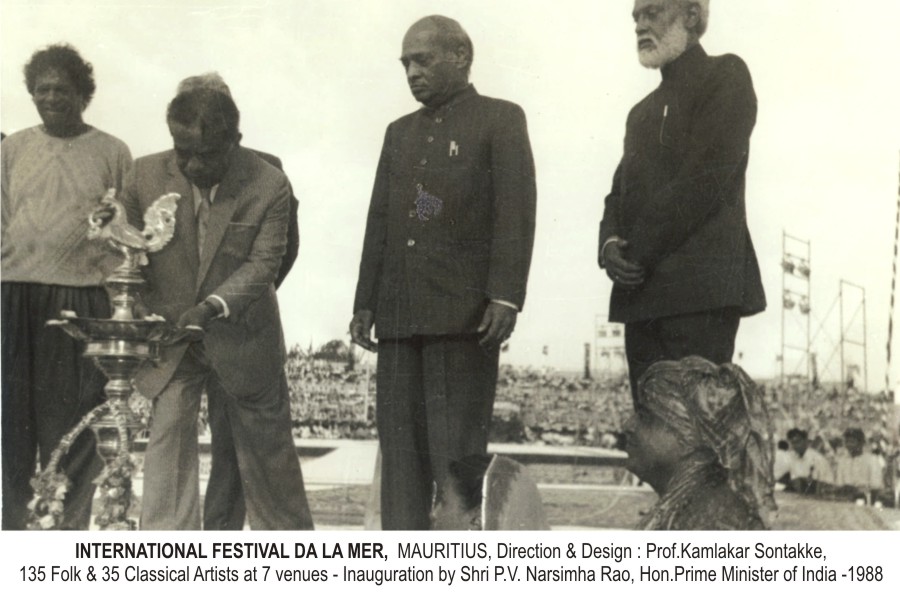
However, the admission has a conditional bond related with scholarship with the payment of 1.25 lakh rupees, if the candidate dropped out of the school. A local official of his town, who was fond of Sri Kamalakar, helped him with the signature on the conditional bond without the knowledge of Kamalakar’s father, for which he was admitted in to the school. This was his first stepping stone in to the theatre arts.
Though he was a hard working, disciplined and punctual student at the school, his English language and communication skills was a hurdle to him because of his Marathi medium of instruction throughout his earlier education. After a year, due to the language and communication issue, he wasn’t able to adapt to the worldly knowledge of theatre, for which he wanted to drop out of the school.
“Owing to pay money for the conditional bond, I tricked the director of the school with a false telegram of serious illness to his grandmother and to return to the hometown urgently. For which, I was caught by the director Alkazi, by the stamp on the telegram which was from Bengali Market, rather than my hometown,” he says chuckling at his own innocence.
Then, the director Alkazi, who was very fond of him for discipline and dedication, laughed at his mischief act and assured that he would help him overcome the hurdle and can be contacted in case of any doubt and difficulty.
With such assurance and support, Kamalakar stood as a best student, a gold medalist, an all-rounder and the Bharat Purashkar winner, throughout his years at school. During his years at the school, he was casted in every play performed for his excellent skill in theatre arts, though his diploma was in direction training.
After his graduation from school, with instruction from Sri Alkazi, he joined the a repertory theatre team representing the school where he taught, acted in plays, managed the event production and was also chosen as a prefect of the school managing the school schedule and other activities. He managed both the school and external activities conducting workshops and shows in cities like, Bangalore and Kerala.
During his time at the repertory, few cultural delegates from Mumbai on their visit to the school,requested Alkazi to entrust some of his members from the school establish a theatre institution in Maharashtra. Sri Kamalakar was then introduced formally to the delegates by Alkazi, mentioning the opportunity to work ahead with delegates to work on theatre arts at an academy in Maharashtra.
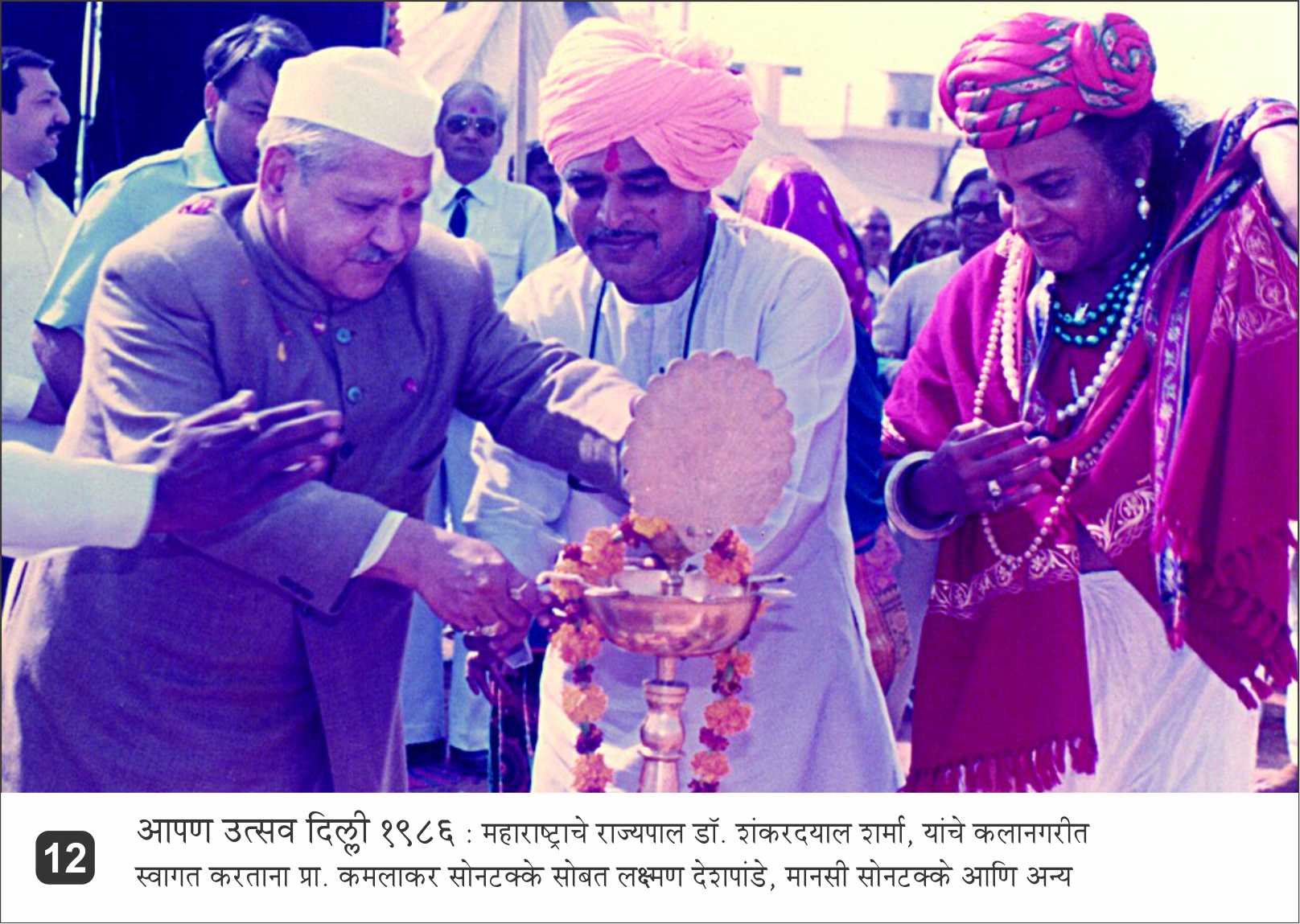
In the year 1967, he joined the Mumbai Marathi Sahitya Sangh, a private art and literary academy established in 1935, located in Girgaon,Maharashtra which invited auditions for the first batch of 28 students in theatre acting. His course curriculum included technical subjects in theatre, acting and other crafts. Not only the traditional theatre subjects, he also groomed his students to become future teachers of theatre and drama arts. For three years, the academy produced outgoing students who became theatre critics, television actors, and theatre professionals.
Due to his dedicated perseverance and establishment of theatre skills, theatre acting was permanently added to the curriculum of the academy. He gained a lot of critical reception in the media through his earlier contribution to National school of Drama and production of Marathi theatre plays.
In the year 1971, he applied for Colombo fellowship from the British Council of nine months, where he undertook placements at various international repertories. In United Kingdom, he met eminent theatre personalities during this experience at the British theatre.
- Comparing the British theatre to Indian theatre, he claims that the Indian theatre had multiple faces owing to regional establishments of theatre whereas British theatre had a realistic face of depiction and portrayal. Also, the professional establishments were differing in factors of work security, payment and welfare of the artists and other production values.
He also claims that theatre industry in India is neglected due to lack of support of establishment with time and appeals for establishment of open-air theatre arenas, adequate green rooms, rehearsal halls, exhibition rooms, and storage rooms for Indian art and theatre practitioners.
Speaking of his personal life, Prof. Sontakke says “Marriage was a delayed priority in my life as I had gone to the National School of Drama soon after my post graduation”
Sri Kamalakar met Kanchan Sontakke, his wife at the Mumbai Marathi Sahitya Sangha, when he started a theatre training course. She was trained in dance and had an academic background of science. In 1973, He was married to Kanchan when came back from United Kingdom.
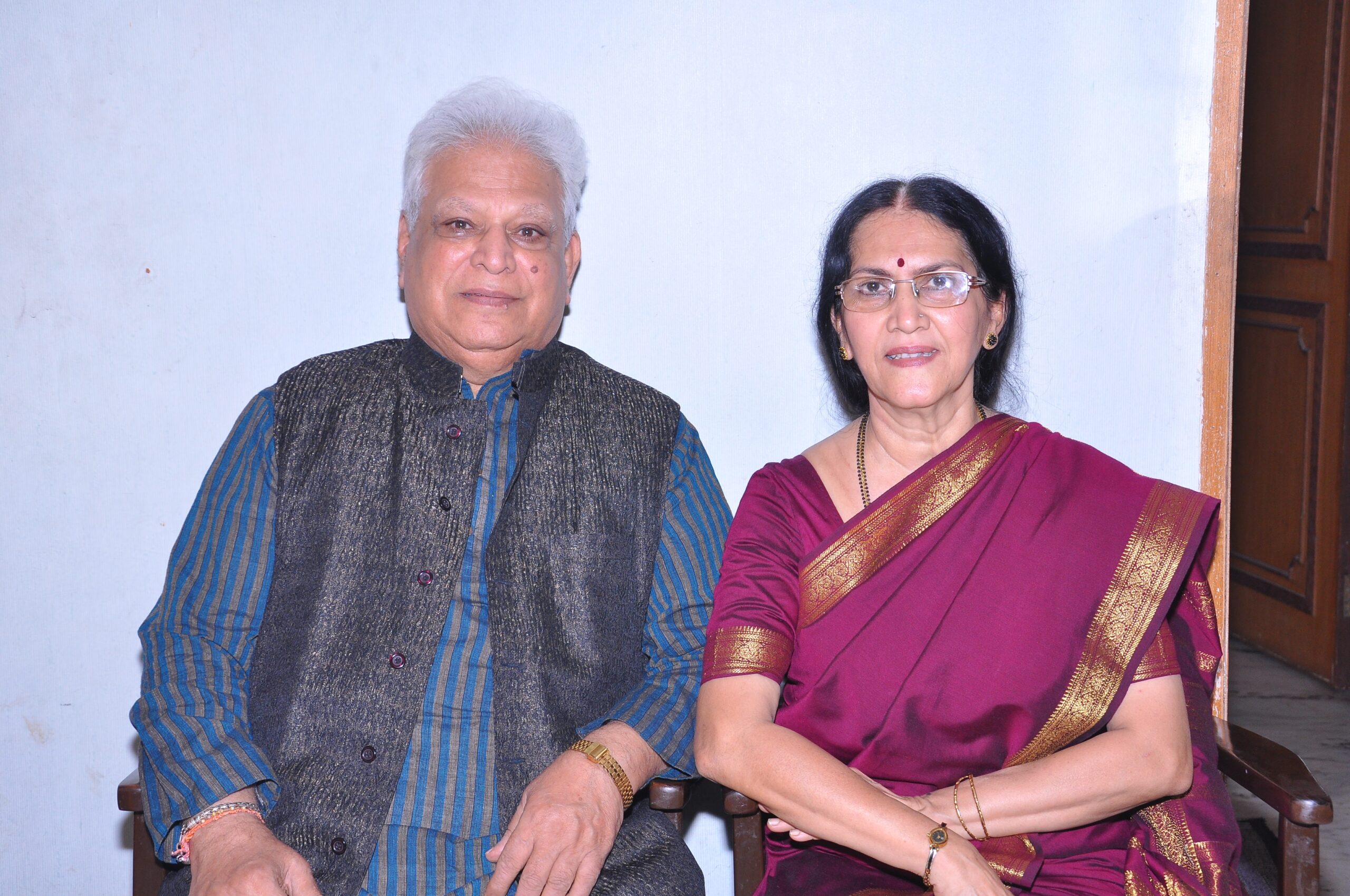
Mrs. Kanchan Sontakke, for the past 36 years has been working with ‘Natyashala’ a movement that reaches out to the mentally and physically challenged children through dance, drama, and various arts and crafts. She has trained 4000 teachers of disabled schools enabling them to impart knowledge in personality development for the disabled children.
They have two daughters, Manasi Sontakke, an architect and bhartnatyam dancer, currently working as bi-lingual host for government protocol and corporate meetings, and Mythili Sontakke, a former behaviour scientist and home maker.
In the year 1972, he was invited by the Vice Chancellor and the members of governing body of Dr. Babasaheb Ambedkar Marathwaada University, Aurangabad for an official meeting, if he would be interested to conduct certified theatre workshops a year later for the university.
He then proposed a PG degree course in theatre arts to be implemented in current year. He introduced the similar course curriculum of seven subjects, and taught 22 students per year. He also played a key role in administering the development and beautification of the University premises.
After working as Director at Drama Department at Dr. Babasaheb Ambedkar Marathwaada University ,Aurangabad, Sri Kamalakar established a ‘Multi-lingual theatre training’ program at Indian National theatre in Mumbai focusing on his aspirations of teaching students.
In the years 1983-84, he has been designated as the Director of Culture under the Government of Maharashtra. In the year 1986, he became the Director of South Central Zone, Cultural Centre, Nagpur. Posts the demise of then, Prime Minister Sri Rajiv Gandhi, the cultural centres of India have lost their fair importance, which were established upon keen interest by him.
As Director of South Central zone, in his personal capacity, he conducted 18 national-level theatre festivals all over India to promote theatre arts. He has skilfully managed to conduct all these festivals under his smooth administration inviting all artists from various cultural centres of India.
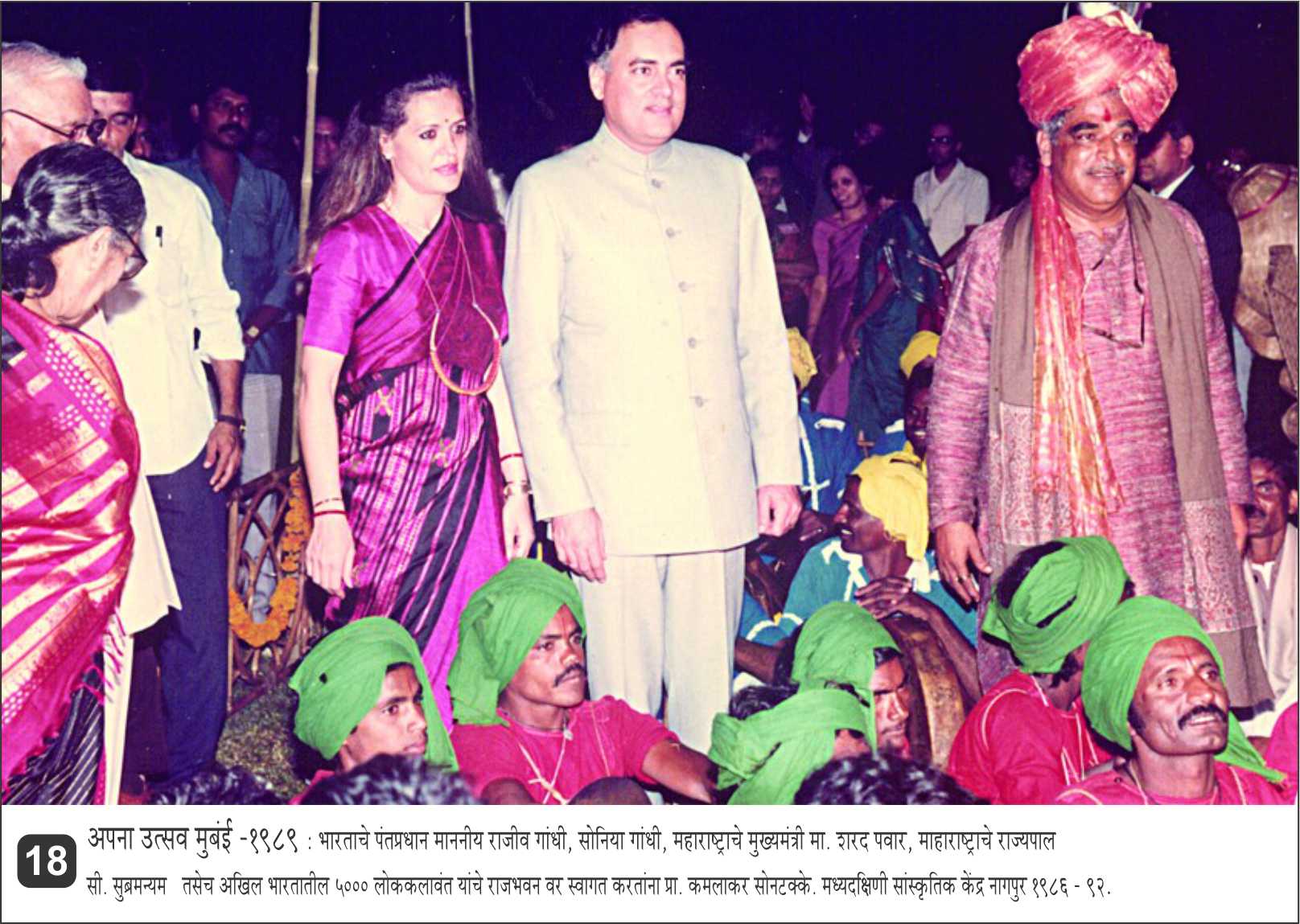
He also worked as creative director for importance of folk, tribal and traditional theatre artists platform shows at open air-arenas in Mumbai and Delhi. In support of the folk and traditional tribal artists, he appeals that there is a dire need of a spokesperson at individual state level for their growth and sustenance.
His contributions as the Director of Culture were innumerable and he never criticized on lack of funds, opportunities or other infrastructure, and only emphasized on strengthening the program committee of performing arts under the leadership of Sri Rajiv Gandhi.
“The current scenario of India has everything that is need, only that lacks is imaginary leadership skill to promote the traditional arts” says Professor Sontakke.
Contributing to the theatre arts and focus to derive best results of the every position that he held, overcoming all critical situations, and planning every task under his responsibility are memories he cherishes for life.
Shri Kamlakar Sontakke was awarded the prestigious Sangeet Natak Akademi Award in the year 2013 in the field of Direction, at the investiture ceremony of the Sangeet Natak Akademi Fellowships.

